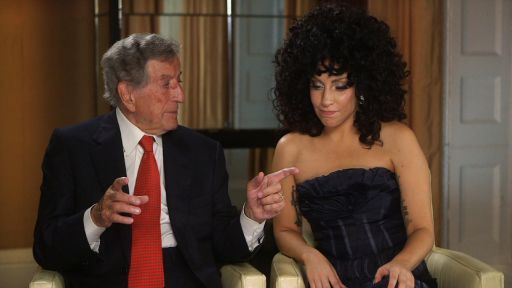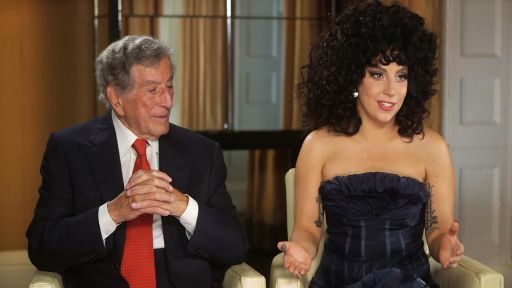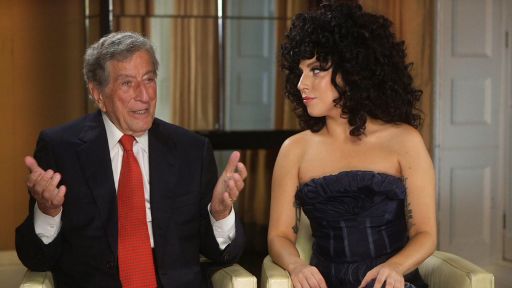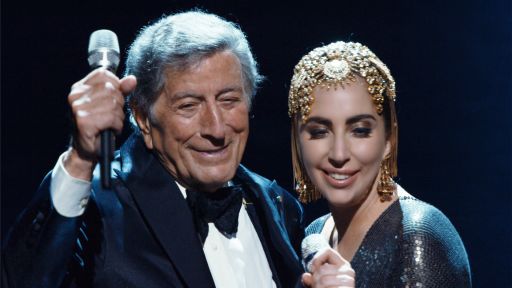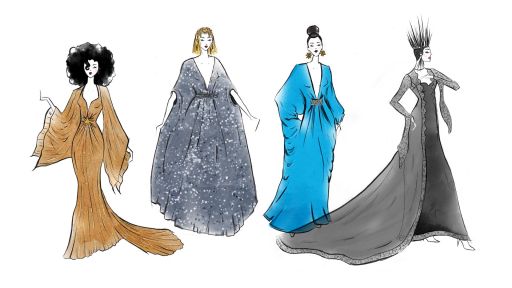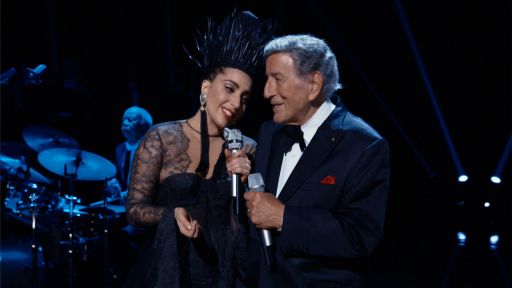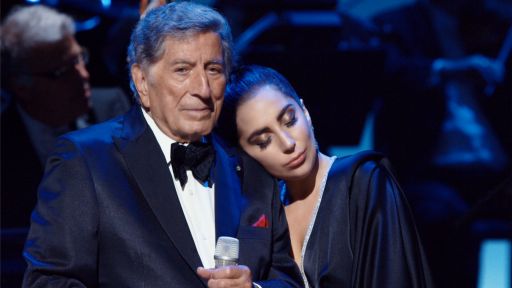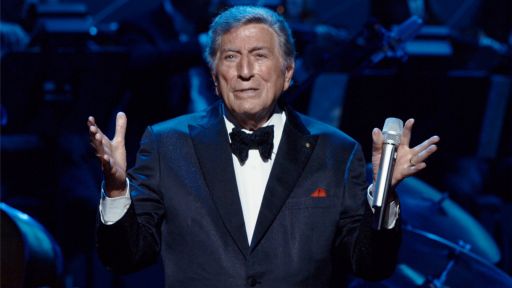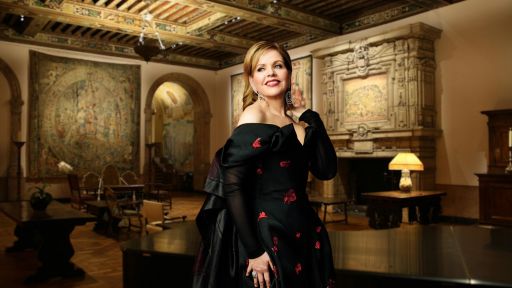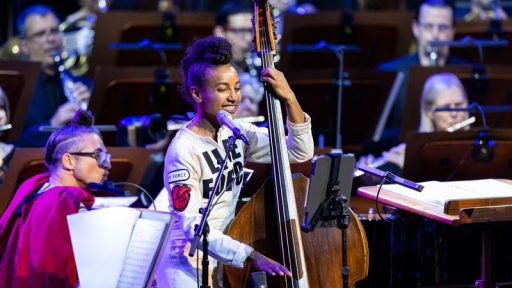The concert broadcast concert Tony Bennett & Lady Gaga: Cheek to Cheek LIVE! features classic selections from the Great American Songbook, each handpicked by Tony Bennett and Lady Gaga. Learn more about the composers, lyricists and history of the songs, which are also on the Cheek to Cheek album.
“Anything Goes”
Written by Cole Porter for his musical Anything Goes (1934).
Tony Bennett first recorded the song in 1959 with Count Basie and his Orchestra for the album Basie Swings, Bennett Sings, also sold as Strike Up the Band. The song is the first single from Bennett and Lady Gaga’s Cheek To Cheek album and kicks off their concert broadcast on Great Performances.
“Cheek to Cheek”
Written by Irving Berlin for Top Hat (1935), a film that starred the dream dancing couple Fred Astaire and Ginger Rogers.
“Nature Boy”
Written by songwriter eden ahbez and first released by Nat King Cole in 1948, the song is like a fable and lacks the witticisms of many other works in the Great American Songbook. The lyrics advise, “The greatest thing you’ll ever learn is just to love and be loved in return.”
“How Do You Keep the Music Playing”
Composed by Michel Legrand; lyrics by Alan and Marilyn Bergman
Theme song to film Best Friends (1982)
Patti Austin and James Ingram were the first to record “How Do You Keep the Music Playing?” for the film Best Friends, and the song was nominated for an Academy Award. Tony Bennett has included this favorite song on four of his albums, including Cheek To Cheek.
“Bang Bang (My Baby Shot Me Down)”
The song, written by Cher’s then-husband Sonny Bono, is from the album The Sonny Side of Chér (1966). The version Nancy Sinatra released the same year received more recent exposure on the soundtrack to Quentin Tarantino’s film, Kill Bill Volume 1 (2003).
“Firefly”
Composed by Cy Coleman with lyrics by Carolyn Leigh in 1958, this song was an audition piece for the musical Gypsy. Tony Bennett first recorded it in 1958 and has kept it on his roster for many recordings, including on Tony Bennett at Carnegie Hall (1962), and as a duet with…Kermit the Frog on Tony Bennett’s album of duets, The Playground (1998).
“I Won’t Dance”
Originally composed by Jerome Kern with lyrics by Oscar Hammerstein II and Otto Harbach for the musical Three Sisters (1934) – which flopped – the song got new lyrics by Dorothy Fields and Jimmy McHugh in 1935 for the film Roberta, starring Ginger Rogers and Fred Astaire, Irene Dunne and Randolph Scott.
“I Can’t Give You Anything But Love”
Like “I Won’t Dance,” this song is a collaborative effort by Jimmy McHugh (music) and Dorothy Fields (lyrics), written in 1928. It became the hit song of the Broadway revue Blackbirds of 1928.
Lena Horne sang the song in the film Stormy Weather (1943), Marlene Dietrich sang it in Seven Sinners (1940).
“Lush Life”
Billy Strayhorn (“Take the A Train”) poured over the music and lyrics to this song in his youth for years. He completed it in the 1930s but first performed it with singer Kay Davis with the Duke Ellington Orchestra in 1948. The song has since been recorded by many notable singers and musicians over the decades; particularly famous are the versions by Nat King Cole, John Coltrane and Johnny Hartman.
“Let’s Face the Music and Dance”
Irving Berlin composed this song in 1936 for the film Follow the Fleet. Quite appropriately, the song was featured in a dance number with Fred Astaire and Ginger Rogers.
“But Beautiful”
Composer Jimmy Van Heusen and Johnny Burke wrote this song in 1947 for the great Bing Crosby to sing in the movie The Road to Rio, starring Crosby, Bob Hope and Dorothy Lamour. Tony Bennett first recorded it in 1975 for The Tony Bennett / Bill Evans Album with the late jazz pianist and composer Bill Evans (1929 – 1980).
“It Don’t Mean a Thing (If It Ain’t Got That Swing)”
Duke Ellington wrote the music and Irving Mills penned the lyrics to this great jazz classic that introduced the term “swing” to many. The Duke Ellington Orchestra recorded the song in 1932, which was inducted into the Grammy Hall of Fame in 2008.

